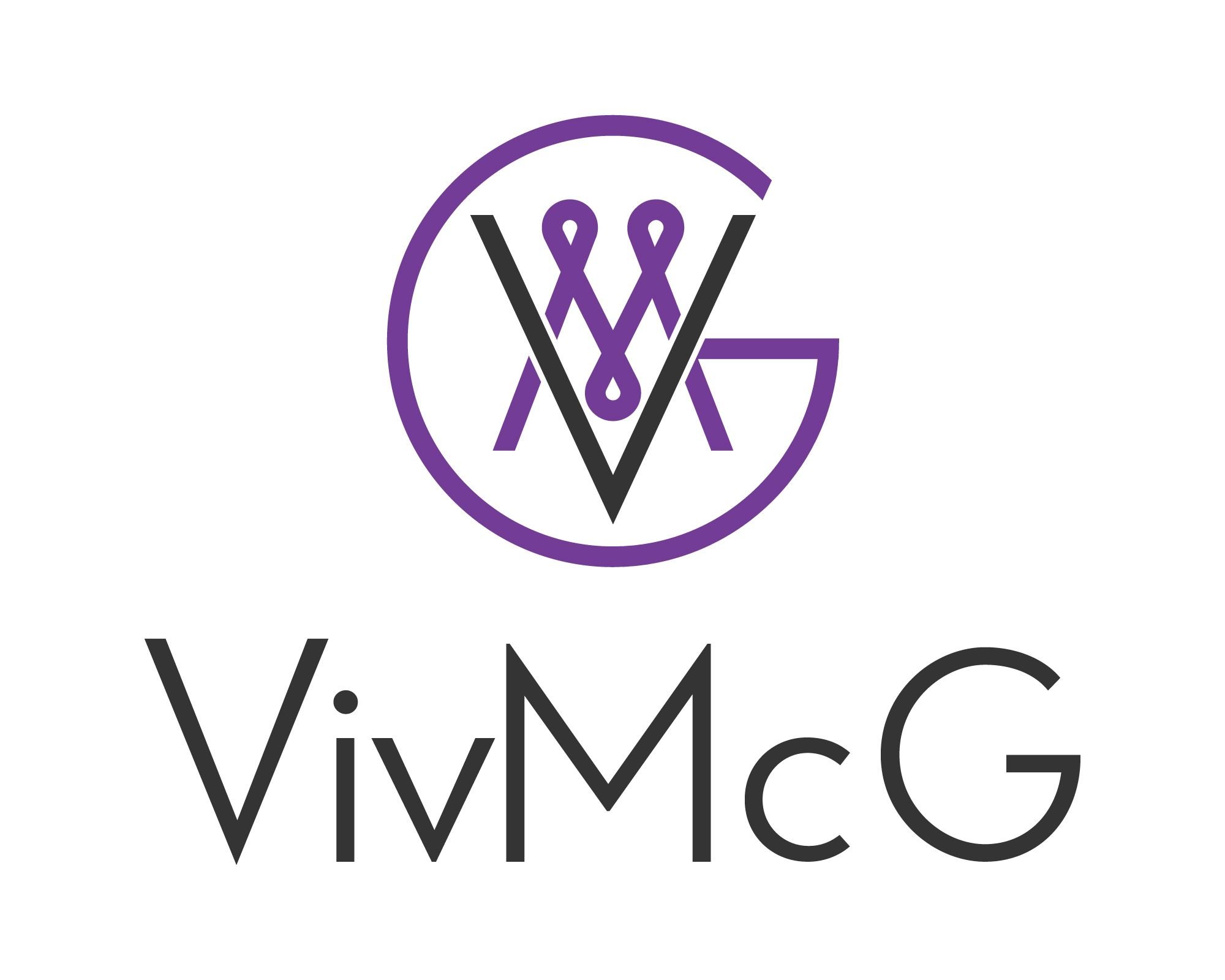top 8 benefits of getting enough beauty sleep
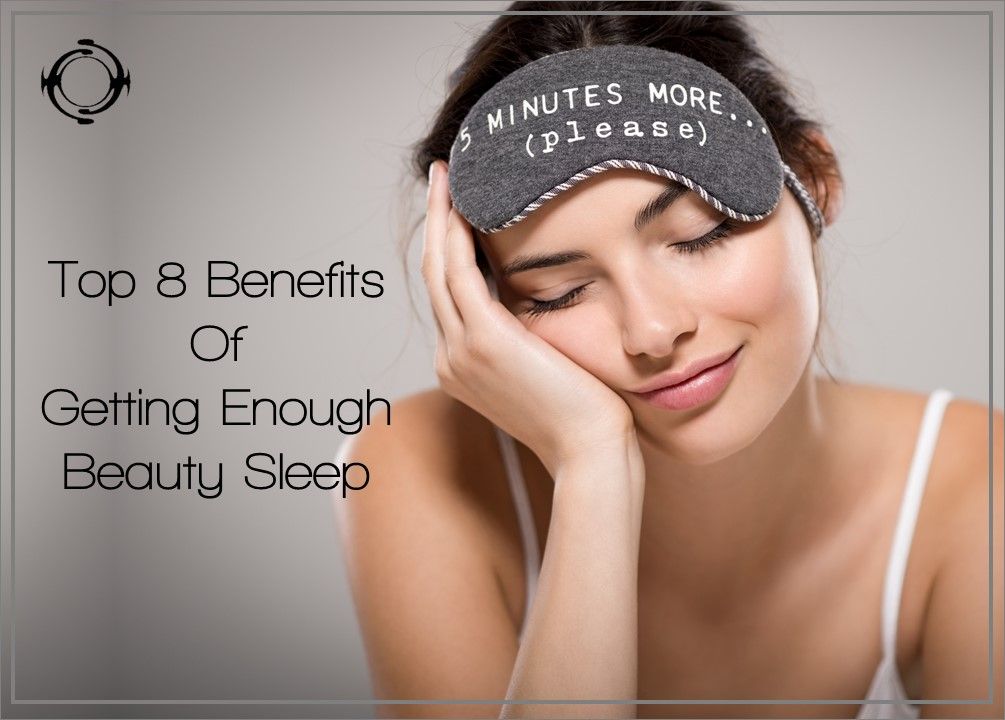
What is Beauty
Sleep?
According to Wiktionary it is “sleep before midnight, on the belief that
early sleep hours conduce to health and beauty”. Basically it captures the idea
of getting sufficient sleep to keep one looking young and beautiful.
According to Lauren
Hale, Ph.D., of the National Sleep Foundation adults over the age of 17 need between
7 and 9 hours of sleep. There’s no exact figure as each of us is unique and
individual but this is a guideline.
As most of us
already know, getting a good night’s sleep is important for our overall health
and well-being but did you know that it also has an impact on your skin?
A good
night’s sleep can mean good skin health because the amount of cortisol (stress
hormone) released into your body is kept to a minimum. When you are
sleep-deprived, your body makes creates more of this hormone, elevated levels
of which can lead to increased stress and inflammation in the body which negatively
impact your skin.
Below are some of
the benefits of getting a good night’s sleep, every night; benefits that can help you look
younger for longer.
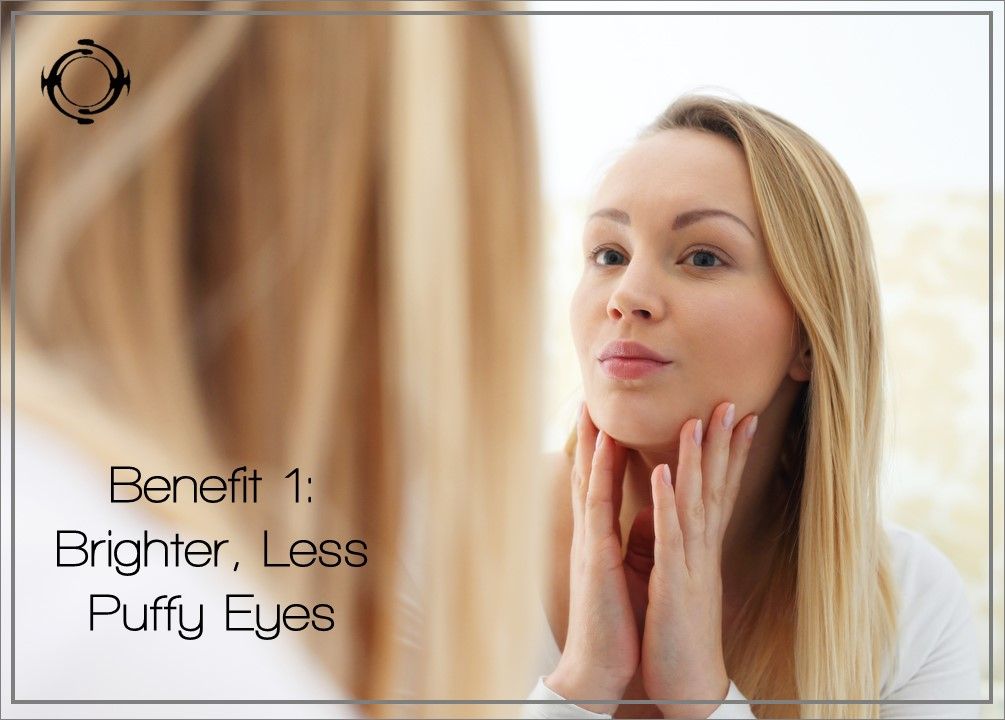
Benefit 1: Brighter, less Puffy Eyes
Puffy eyes are one
of the first noticeable signs of a poor night’s sleep.
As we sleep our body
rebalances our hydration levels and processes excess water for removal. Not enough
or poor sleep results in poor water balance and this, in turn, leads to puffy
eyes (or bags under your eyes).
Sufficient sleep
can also minimise dark circles under the eyes.
When you don’t get enough sleep,
blood flow isn’t as efficient and the blood can collect under the eyes and
become visible. Since the skin round our eyes is so thin, the collection of
blood creates the appearance of dark circles.
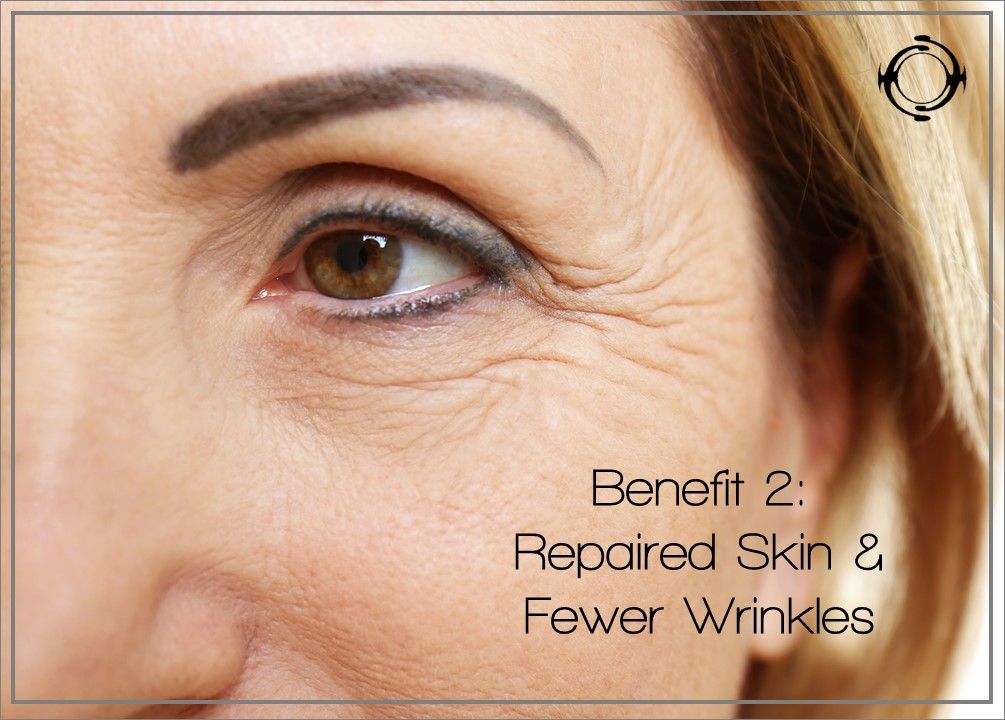
Benefit 2: Repaired Skin and Fewer Wrinkles
While we sleep
there is an increased production of growth hormones.
For adults this increase
enables damage cells to be repaired. If our bodies cannot produce enough of
this growth hormone, then small damages to the skin cannot get repaired and these
damages will accumulate over time. This can result in more noticeable signs of
aging.
Additionally while
we sleep, our skin produces collagen which prevents sagging and gives our skin
bound and firmness. If our body cannot produce enough collagen our skin will become
more wrinkled and aged, faster.
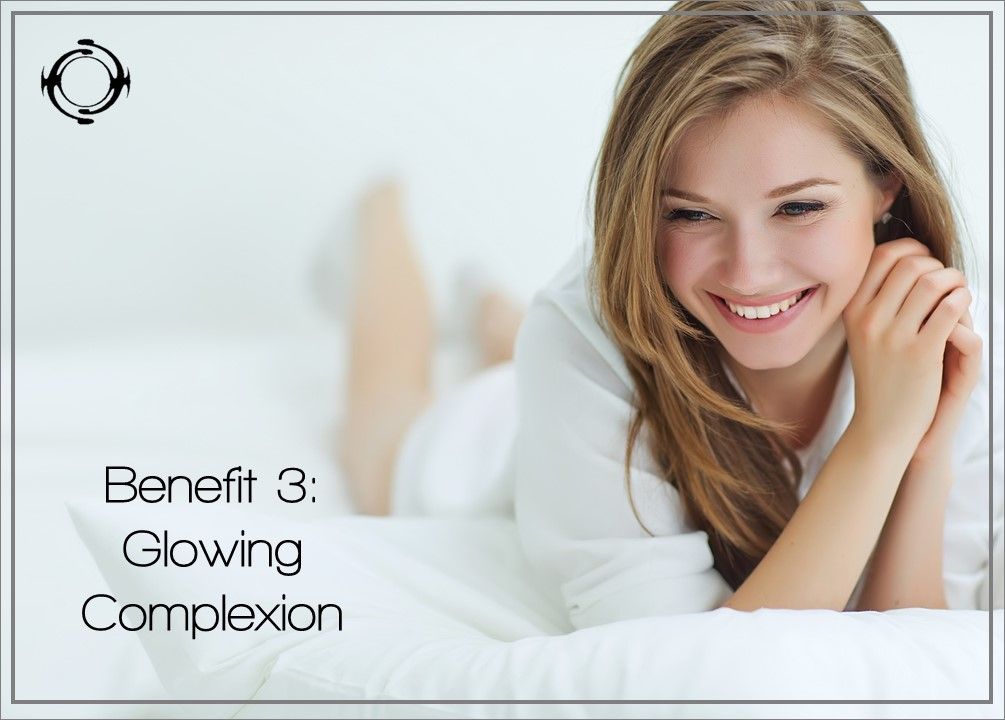
Benefit 3: A Glowing Complexion
As you sleep, your
body increases blood flow and the increased level of blood flow to the skin
surrounding your face leads to a glowing complexion and rosy cheeks. When you’re
sleep-deprived and blood hasn’t had the chance to flow properly, the skin on
your face looks pale and ashen.
Also if you don’t
get enough sleep at night, the inflammation levels in your body can rise. This
can lead to a rise in the breakdown in collagen (which we know is important for
repairing the bounce in skin) and hyaluronic acid which both attribute to your
skin’s healthy glow and bounce.
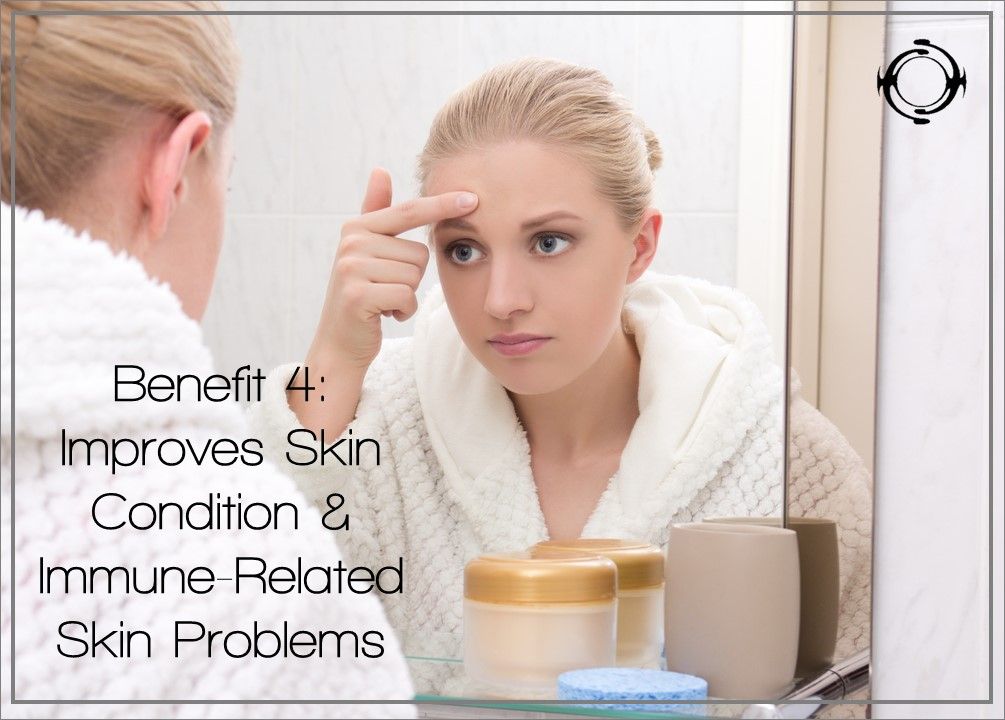
Benefit 4: Improves Skin Condition and Immune-Related
Skin Problems
If you’re
sleep-deprived, the inflammation in your body will rise and this can show up,
on your skin, in the form of acne and increase skin sensitivity.
Additionally,
increase inflammation levels means the body isn’t able to regulate its immune
system as effectively. When it comes to immune-related skin conditions such as
eczema and psoriasis, an unstable immune system can create flare-ups and increased
irritation.
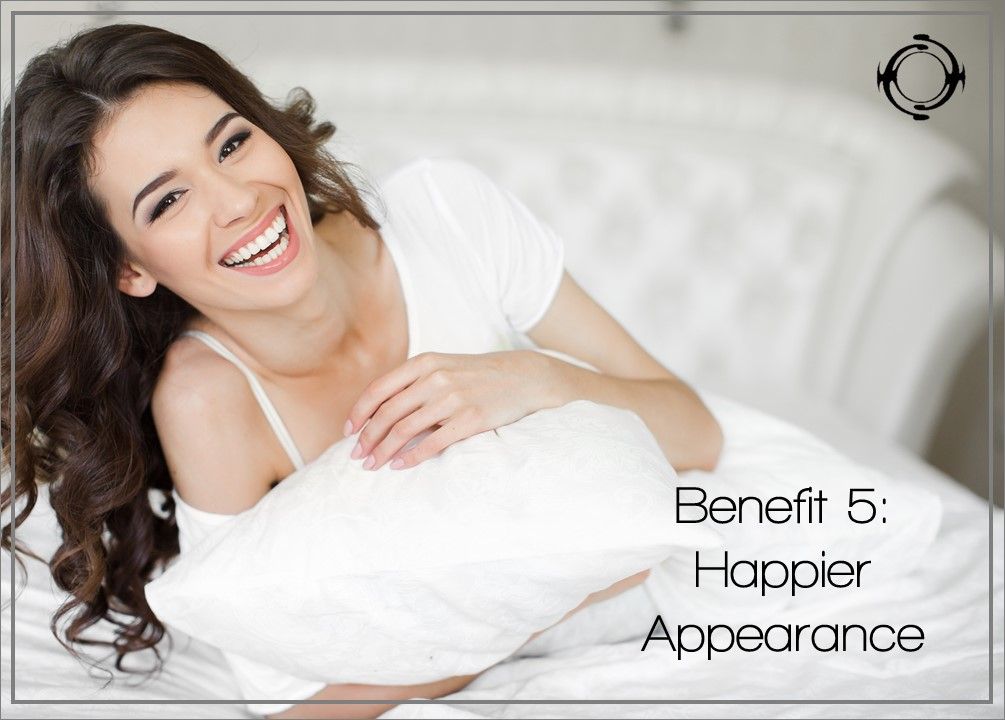
Benefit 5: A Happier Appearance
If you are not
able to get enough sleep at night, when you waken in the morning you may find
that the corners of your mouth droop more and you appear to look sad.
Sleep-deprived people tend to frown more too.
This sad
appearance (as well as puffy eyes, dark circles) signal to others that you’re
sleep-deprived and may attract comments such as “You look tired”.
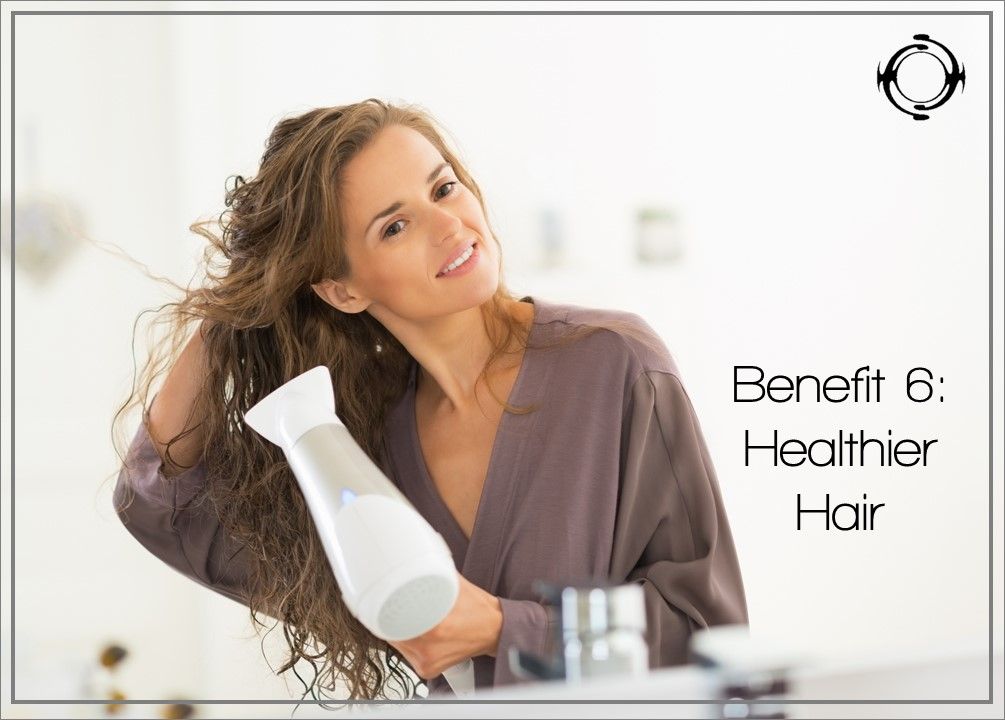
Benefit 6: Healthier Hair
A good night’s
sleep means that blood flow is well-balanced. Our hair follicles (the living
part of our hair where growth begins) receive the nutrients, minerals and vitamins
they need for healthy growth. So when we are lacking in sleep, our hair
struggles to get the nutrients etc it needs to grow and stay strong, full and
healthy.
And lack of sleep
can lead to more stress which in turn leads to an increase in the production of
the stress hormone, cortisol, and cortisol can lead to hair loss.
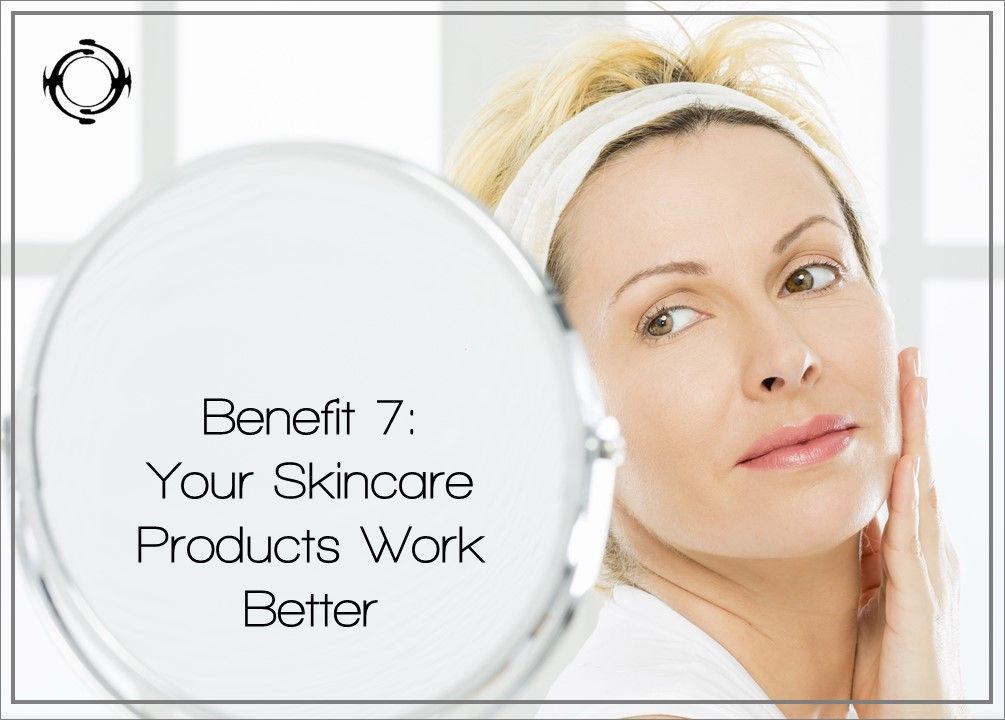
Benefit 7: Your Skincare Products Work Better
If you sleep well your skin starts the day “in a good place” and can, therefore, gain better benefit from the beautiful ingredients in your skin products.
If you’re
sleep-deprived and your skin isn’t looking at its best, sure your skincare
products will help nourish your skin but you can’t expect miracles… you need to
help your products by creating the best healthy skin platform.
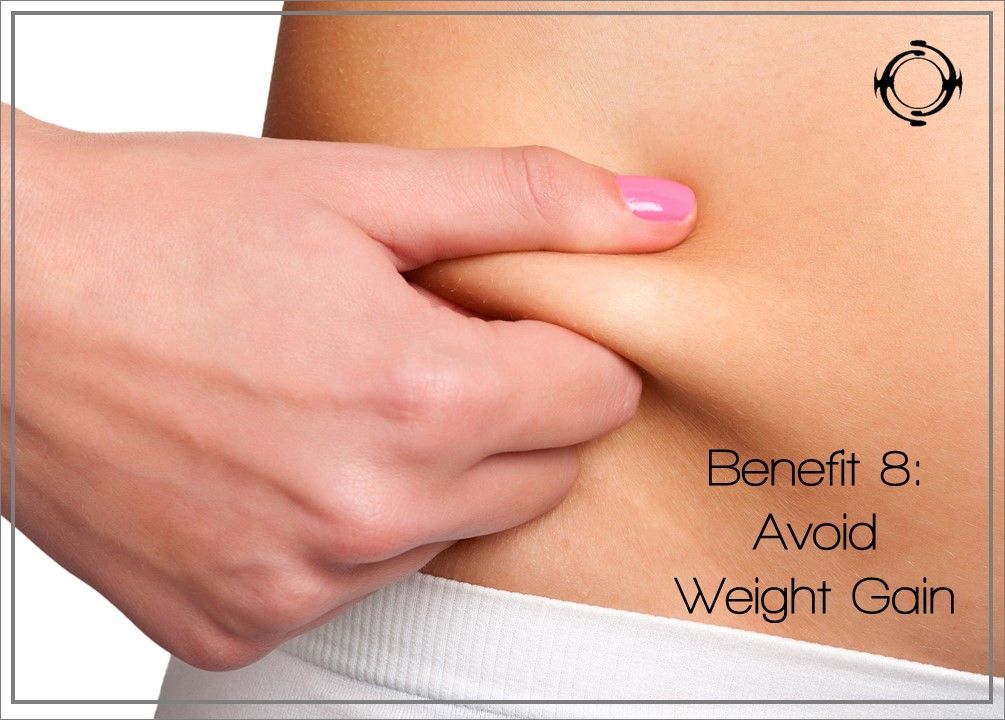
Benefit 8: Avoid Weight Gain
Science has proved
that insufficient sleep can lead to over-production of the hormone, ghrelin,
which is the appetite-inducing hormone that encourages you to snack more during
the day. On the flip side, lack of sleep impedes the production of the hormone,
leptin, which is the appetite-suppressing hormone.
Weight gain can
affect the skin in a variety of ways:
- Varicose veins may
appear in your legs as a result of the strain of bearing excess weight.
- Stretch marks may
appear on the skin’s surface.
- Creases in the
skin can trap moisture which can attract bacteria, yeast and fungi to grow.
- Weight gain can
lead to corns on your feet as they rub more against your shoes as a result of
the increased weight pressing down on your feet.
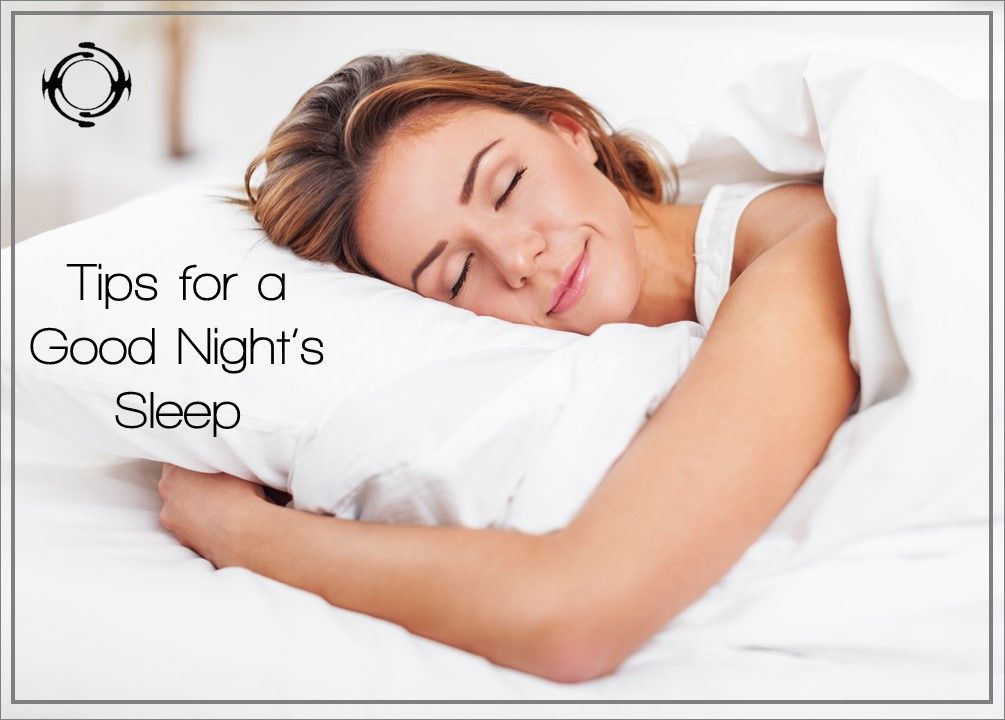
So How Do You Get A Good Night’s Sleep?
Here are a few
tips to help you get a god night’s sleep and waken up feeling rested and looking
good:
- Keep to a regular sleep
schedule, going to bed at the same time every night even at weekends.
- If you have a bad
night’s sleep, try to make up for it by taking a short 20 minute nap before 4pm
during the day. Don’t go to bed the following night any earlier than your normal
schedule as this may actually make it harder to go to sleep, resulting in two
nights of poor sleep.
- Turn off all electronics
15 – 20 minutes before you’re ready to head to bed so you can begin to wind
down. And keep all electronics outside the bedroom to avoid the temptation of
using them before you go to sleep and to avoid blue radiation.
- Introduce a
wind-down period before you head to bed. This could include some light
stretching, dimming the lights, or reading.
- If you find you’re
not asleep within 15 minutes of heading to bed, get up and do something
relaxing such as reading for a short while before returning to bed. Don’t make
the mistake of turning on the TV to relax as this is actually stimulating and
could lead to a bad night’s sleep.


